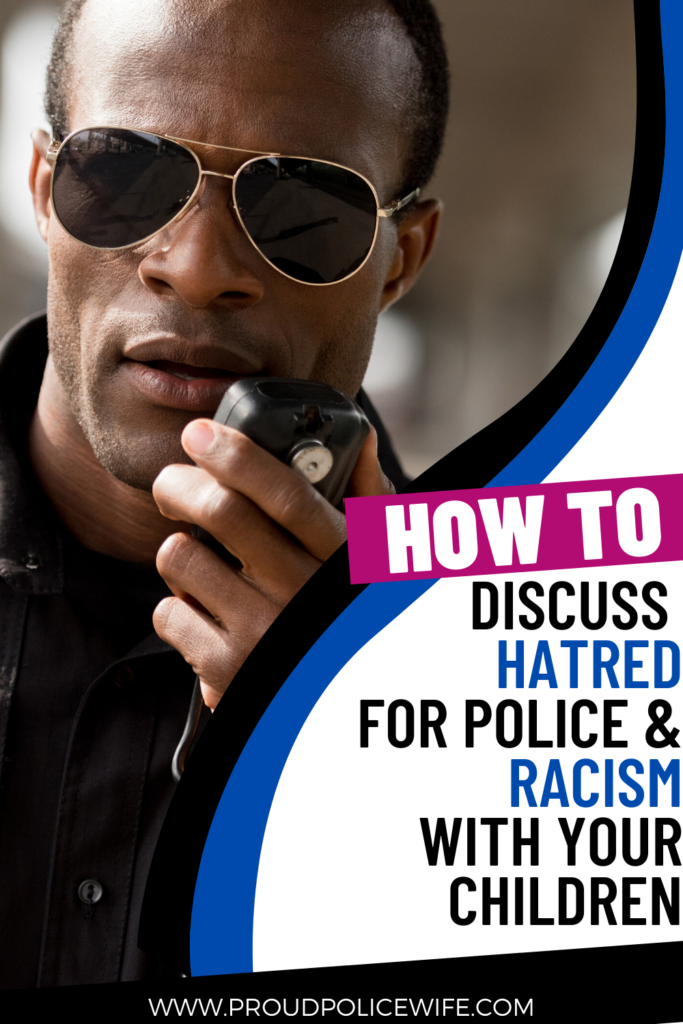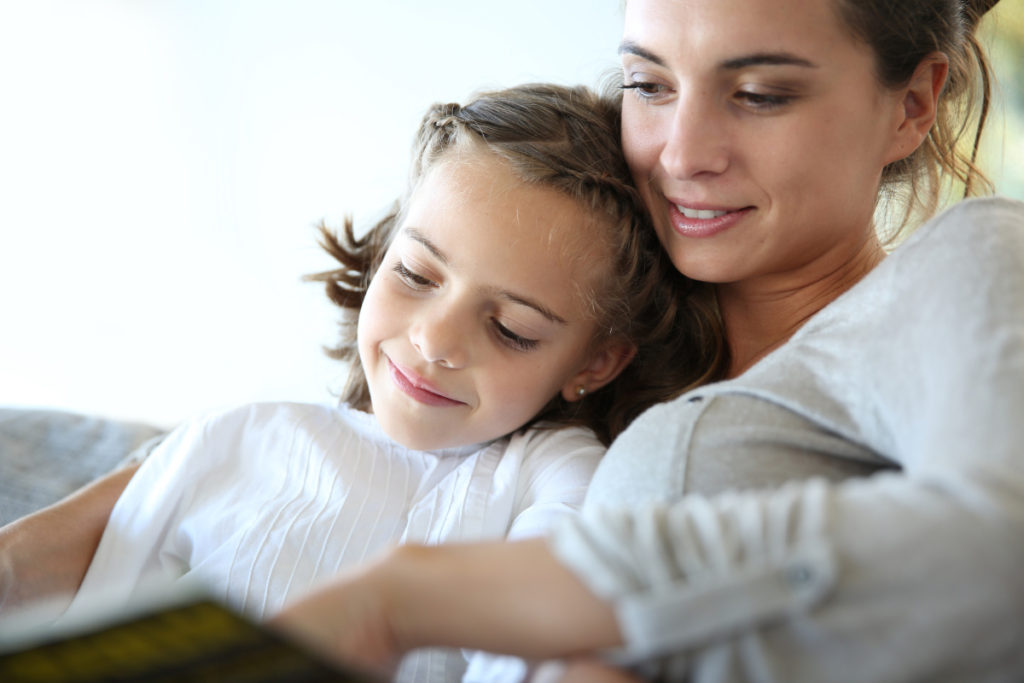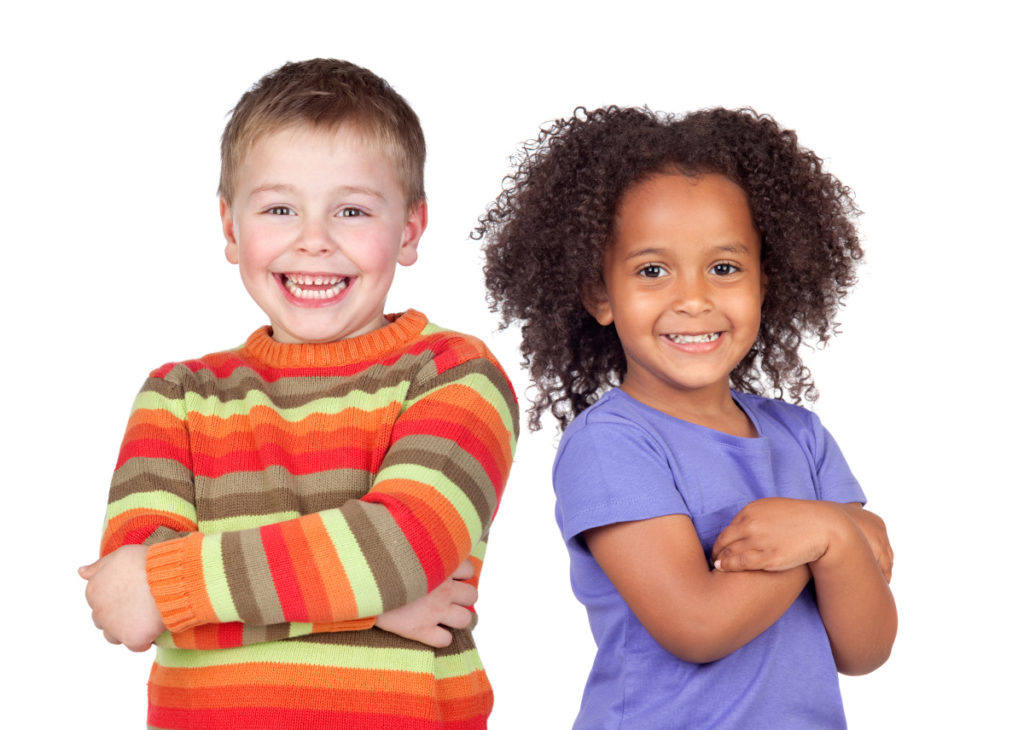
As a mother of three and former educator I know how difficult it can be to answer hard questions.
Right now, it feels even harder as the wife of a police officer because we are having discussions about both the hatred police are facing and racism in the world. We want peace and understanding for both situations, which many people don’t understand.
I went back and forth on whether my kids were too young to know about what is happening in the world right now, but the fact of the matter is, we can’t ignore it.
Our children know our stresses, they feel the tension. They may even overhear conversations, the news or the radio. But what will happen is, they will hear bits and pieces of these conversations and ultimately, they will create their own opinion but it may be full of misinformation or missing pieces. Conversations about race, differences, and injustice should begin when children are young.
It is our job to provide them with as much honest, well-informed information as possible. This will of course vary depending on age, but these conversations start in our home and hopefully these are ongoing discussions that will grow over time and as your children age and mature.
If you are a law enforcement family, then you are also having discussions with your children about their parent’s job and any negativity towards law enforcement at this time. It can be incredibly scary for our children to watch their loved one leave when they know or sense tension or negativity. We want to reassure them that they are doing their job to help others. I often tell our children that we are proud to share their daddy with others and that is his gift from God. Depending on your religious beliefs, you may want to have a biblical discussion on this, too.
If your children are older, it is good to remind them of their parent’s training to protect themselves and protect others.

Let me say this:
There is no perfect blueprint for how to have hard discussions with your children, but if you attempting to have an open dialogue of any kind then YOU ARE DOING THE RIGHT THING.
We will not have all the answers and that is alright. We can’t fully understand every position but we can do better. It is okay to tell our children that we don’t have all the answers.
If they ask us something that we don’t know the answer to then what we can say is: “I don’t know the answer to that, but I would love to learn about it with you.”
We can also start by admitting when we are wrong and set examples for our children.
When talking to your children about difficult conversations, keep the following in mind:
Fair vs Unfair
Help kids understand by putting things on their level. For children, they often hear the terms fair and unfair regularly. Kids are smarter than we think. Ask them what fair looks like. Then ask what unfair looks like. Then use their examples to relate to situations like police hatred if you are a law enforcement family, racism, or social injustice.
Be the Change
If you haven’t been having regular discussions about race, racism, hatred for police, etc in your home then now is the time to start.
As an adult and parent, start educating yourself more. We all have biases, more than we are actually aware of even if they are not on purpose. Someone shared this link with me to test for racial bias and it is very eye-opening. Once we become more aware of our biases then we can work to correct them and become more educated about them.
Keep the dialogue kid-friendly while also using correct terminology
Conversations should be short but long enough to get the point across. We don’t want discussions to be over their head. Remember to use kid-friendly dialogue while using correct terminology. Again, using the correct language for them is important, if we do not then we are only delaying true understanding for them. Do not use ‘fake’ words in replace of important words.
Model Behavior
Their actions start with us. When I taught Kindergarten, I routinely would point out when I made a mistake, did something wrong, or needed to learn more if I did not know the answer. If we don’t MODEL this for the children of our future, how can we expect them to do the same? We can do the same in our homes, as well.
Have Empathy
I was discussing this topic with Cyndi Doyle, a professional licensed counselor and she mentioned the importance of modeling and teaching empathy to our children. We need to take the time to learn how others feel. Our perspective is not the only perspective.
Allow your children to ask questions
Sometimes all your children need is a listening ear. You can say, “I know you are worried about daddy going to work today. Do you have questions about what is going on?”
Some examples of discussions I have had with my own children:
“What does it mean when people are fair? What does it mean when people are unfair? Can you tell me a time when someone was unfair to you? How did it make you feel?” These are jumping-off points for larger discussions.
My young daughters best friend is black. During a discussion of differences, I asked her how she would feel if someone was mean to her best friend because of the color of her skin. This helps build empathy and lets her see the “unfairness” of the situation. We then discussed differences and how they make us unique, special, etc but we need to also respect people because of their differences.
We have also had discussions about what they already know about Martin Luther King, Jr. They are school-aged children and have learned about what he stood for. This is a good starting off point for talking about what blacks and many others are feeling right now.

Talking about racism and diversity with children:
First, I will say, as a white privileged female, I can not fully imagine what it is like to be anything but a white privileged female, but I can educate myself. I think it is important to keep that in mind when speaking to our children; we need honesty.
Combatting racism and learning to have more acceptance (along with many other social injustices) starts in the home. We need to be having open discussions with our children, in the most natural ways possible. We have to answer the hard questions even if we don’t have exactly the right answer.
This is the time to educate ourselves and learn from experts. This is the time to share books, stories, videos, etc with our children.
Here are links to articles that I found to have great advice for discussing racism. As I find more resources, I will add them.
Videos for discussing race and racism with children
5 Tips for Talking About Racism with Kids
31 Children’s Books to Support Conversations on Race, Racism, and Resistance
Books that discuss racism and diversity for young children:
To close, I wish I could give you exact answers for these discussions but I can’t. Each conversation will be different based on our views, religion, past experience, etc. But regardless, these discussions need to happen.
It helps when we ask open-ended questions, use kid-friendly dialogue, and relate to situations they are already aware of.

FREE Police Wife Guide- Top 10 Ways to Rock Police Wife Life
Learn to rock police wife life with these 10 easy tips! Join over 20,000 fellow police wives who are learning to rock it and feel supported with our help each week! Once a week I will provide you with even more ways to feel encouraged and supported for your law enforcement wife journey with my newsletter.
Read my PRIVACY POLICY here.